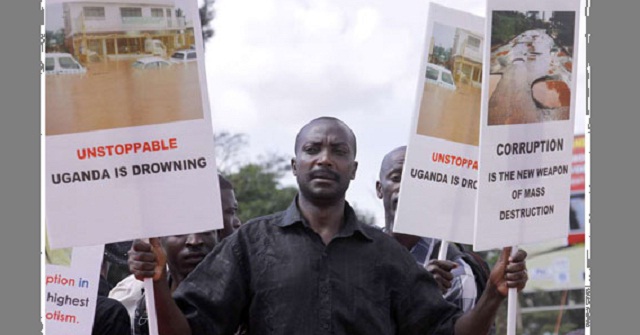
New report gives unexpected clues
Kampala, Uganda | THE INDEPENDENT | Ugandans are becoming one of the unhappiest people in the world, according to the latest World Happiness Report 2018 that was released on March 14 by the United Nations. Uganda is ranked at 135, just 21 slots from the unhappiest country in the world; Burundi. What makes the report disturbing is that eight of the unhappiest countries in the world are from Africa, and four of these are from the east African region. Uganda stands out because, in the past, it has been ranked better.
The survey’s coverage has been growing, from 149 countries in 2013 to 156 in 2018. Over that period the six East African countries have posted varied performance. In 2013 Uganda was ranked the happiest country in the east African region at number 120. Kenya was second happiest at 123,Tanzania third at 151, Rwanda fourth at 152 and Burundi at 153. South Sudan was not ranked.
In 2015 Uganda’s happiness declined and it moved to 141. Kenya’s also declined but at a slower pace and dropped two places to 125. Rwanda and Burundi were also less happy, declining to 154 and 157 respectively. Only Tanzania improved in happiness to rank 146.
In 2016 Uganda declined further to rank 146. Meanwhile, Kenya improved to 122 and Rwanda to 152. Burundi did not badge at 157 and South Sudan was ranked for the first. Despite raging civil war, South Sudanese were happier than Ugandans at rank 143. Tanzania declined in happiness to rank 149.
In 2017 the rankings were as follows; Uganda 133, Kenya 112, TZ 153, Rwanda 151, Burundi 154.And in 2018 Uganda has been ranked at 135, Kenya 124, TZ 153, Rwanda 151, and Burundi 156. South Sudan today is a very unhappy place, at rank 154; two positions from the bottom.
So why are Ugandans becoming increasingly unhappy? And why should leaders in government and other institutions care?
Part of the reason is that the World Happiness Report was introduced in 2012 to tackle a problem that appears to be growing in Uganda; dissatisfaction with government action or the lack of it. In 2021, the world was in the midst of a major policy debate about what should be the objectives of those in government or public policy. This debate focused mainly on the role of the government in resolving problems faced by the community at any particular moment.These would be problems that require laws and regulations to be adopted, implemented, and enforced by the government. Such public policy also influences how lower level public officials, like MPs, city mayors, local councilors, RDCs and chief accounting officers deal with public policy problems at their level.
In the end, it was agreed thatthe objective of public policy should be to ensure the wellbeing of the people and in July 2011 the UN General Assembly passed a historic resolution. It invited member countries to measure the happiness of their people and to use this to help guide their public policies. So the World Happiness Report became a measure of the extent to which the people of any country perceive their leaders to be working for or against their well-being.
Measuring happiness
The word “happiness” is not used lightly in the context of the World Happiness Ranking. Happiness is an aspiration of every human being, and can also be a measure of social progress. It is really a measure of the wellbeing of the people. It covers two aspects; the emotional expression of how one feels (“Were you happy yesterday?”) and also an evaluation of one’s life (“Are you happy with your life as a whole?”). The report notes that the two are clearly distinct and one cannot be confused for another. A sick poor person might say they are happy when their favourite person visits them. That is an emotion. But the same person can never say they are happy with their life when confined to a hospital bed; that is an evaluation.
The survey covers both the emotional happiness and the evaluative happiness. Countries are ranked on six main indicators; GDP per capita, level of social support, health, perception of freedom, perception of corruption, and perception of generosity.
 The Independent Uganda: You get the Truth we Pay the Price
The Independent Uganda: You get the Truth we Pay the Price



